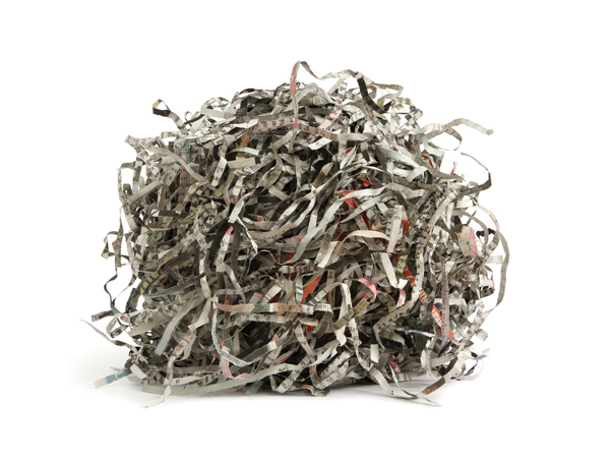What will life in Vancouver be like without a daily local newspaper?
It's an important question, given the gloomy outlook for Postmedia, the corporation that owns the Vancouver Sun and The Province, and, soon, 24 Hours.
Postmedia latest quarterly report was grim. They have all been grim. Revenue was down 12.4 per cent in the three months ending Nov. 30, about $24 million. Expenses were cut by about $10 million (excluding a big tax credit).
That is, to paraphrase Dickens' Mr. Micawber, a recipe for misery.
I am rooting for the newspapers' reinvention and survival. But with each quarterly report, that seems less likely.
It's easy to criticize the Sun and The Province, but they have about 85 reporters and columnists, the largest team of journalists in the province. They provide an important framework for community debate.
If, or when, that is lost, the community will be damaged.
Postmedia revenues have plunged every year since the hedge-fund backed corporation bought the newspapers of near-bankrupt Canwest in 2010.
Revenues for the 10 newspapers were $224 million lower in 2014 than they were three years ago, a 25 per cent decline.
Other businesses have responded to changing circumstances. But this is different.
Cuts to spending, value
First, there is no bottom in sight. It's one thing to manage to a new reality; it's another to be trapped in an apparently unending downward spiral.
Postmedia's main strategy has been to reduce spending. In July 2012, Paul Godfrey, the perpetually upbeat CEO, announced a "Transformation" program to cut costs. Since then, Postmedia has reported annualized savings of $112 million from the initiative.
But that's just 50 per cent of the revenue losses in the same period. The corporation can't cut costs fast enough to keep up with the revenue losses.
Worse, the spending cuts have meant less value for advertisers and readers. That leads to more revenue losses, which mean more spending cuts.
Since Postmedia's purchase, the circulation of its newspapers have fallen by one-third. Some decline resulted from business decisions to reduce regional distribution or eliminate Sunday papers. But mostly, it seems customers just decided the newspapers weren't worth their money and time.
For advertisers, the shrinking audience made the newspapers less valuable.
More people are reading Postmedia content online. But online readers are worth much less to advertisers, and scads of competitors offer effective ways to reach them.
The corporation's "Digital First" strategy, launched in 2011, has been a business bust. Digital revenues from ads and online subscriptions haven't increased in the last three years. At $88 million, online sales make up just 13 per cent of total revenues.
A contrarian view
There is a cheerier view. Journalism professor Marc Edge argues, in his new book Greatly Exaggerated: The Myth of the Death of Newspapers, that the problems are overblown.
Newspaper corporations are still making money for their owners, he notes. Postmedia had EBITDA -- earnings before interest, taxes, depreciation, and amortization -- of $110 million in the last fiscal year. If the hedge funds that really control Postmedia don't like the return on their investment, someone else will buy the newspapers. Everything will be alright.
Edge also believes newspapers will convince readers to pay more for content, reducing the problem of plummeting ad revenues. Paywalls that force people to pay to access newspaper websites are a big part of his solution.
But except for a handful of newspapers, paywalls haven't made a real difference. Postmedia launched paywalls at all its newspapers in May 2013. It now has about 165,000 digital subscribers across all 10 newspapers. But somewhere between 40 to 50 per cent of those are print subscribers who don't pay more for online access. Postmedia doesn't share the information, but the actual revenue from online subscriptions is likely to provide about $1.2 million per paper.
There are too many free sources for the information most newspapers have. And the cost-measures haven't helped. Vancouver Sun forestry reporter Gordon Hamilton's work might have been enough to induce people following the industry to sign up for a digital subscription. But he's gone, part of the staff reductions that helped protect those earnings.
Low investment in the fix
There are even bigger problems with the argument that the newspapers are still healthy because they are making money on an EBITDA basis.
First, those below-the-line expenses are real. Postmedia does have to pay $62 million in interest. It has to commit about $6 million to future pension and benefit obligations. Depreciation represents the future cost of replacing equipment.
Second, earnings have plunged from $190 million to $110 million in three years. Who really wants to think about owning a business on that trajectory? People can fret about the impact of the newspaper group being controlled by foreign hedge funds, but no one else is keen to buy them.
Third, and perhaps most important, those earnings have been achieved by slashing spending and starving the newspapers of needed investments.
Postmedia sets out the reality in its financial statements. The terms of its loans from the hedge funds "contain restrictive covenants that limit our ability to engage in activities that may be in our long-term best interests." (Though really, all shareholders tend to be just as focused on the short term.)
Practically, that means there is little money to invest in efforts to fix the business.
In its 2012 annual report, CEO Godfrey said Postmedia would have "a laser focus on accelerating the transformation... to become a more profitable, nimbler and future-focused company."
One of his four "strategic imperatives" was a commitment to have every newspaper develop separate content and marketing approaches for print, websites, tablets and smartphones.
Since then, Postmedia, laser focus and all, has managed to implement the strategy at just three newspapers: the Ottawa Citizen, Montreal Gazette and Calgary Herald.
That reflects management problems. But it's also a consequence of protecting those earnings that Edge points to as a sign of health. Needed investments aren't made; damaging spending cuts are.
What will be lost
I have run daily newspapers in four provinces and have no magic solutions to the problems of Postmedia, and the Sun and Province. But it has been discouraging to see the lack of radical innovation and experimentation, despite some flashes of creativity like the Sun's work with databases and maps.
The newspapers look much the same today as they did 15 years ago (except skinnier). Postmedia hasn't encouraged tests of radical new ideas in different markets.
To be clear, I see the loss of newspapers as a bad thing. Print or online, they paid skilled people to gather and share information. They reached a large enough audience to reduce our isolation in communities of interest and allow public discussion on issues.
But I'm not hopeful that they will survive in any form that allows them to fulfill that role.
And we need to talk about what that means, and how we can fill the gap. ![]()
Read more: Media
















Tyee Commenting Guidelines
Comments that violate guidelines risk being deleted, and violations may result in a temporary or permanent user ban. Maintain the spirit of good conversation to stay in the discussion.
*Please note The Tyee is not a forum for spreading misinformation about COVID-19, denying its existence or minimizing its risk to public health.
Do:
Do not: